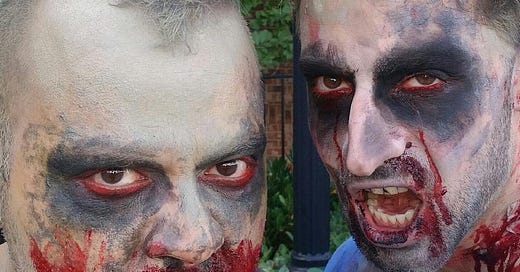The Joystick Interview
A frank talk with Brandon Ley and Johnny Martinez, the rebellious owners of Joystick Gamebar, about running a bar on Edgewood, nightlife, crime and pinball.
These two men are friends of mine. You should know that up front, gentle reader. They are custodians of one of my happy places: Joystick Gamebar downtown, on Edgewood Avenue. The place is a riot. It’s loud. It’s Dungeons and Dragons and classic videogames and mixed dri…
Keep reading with a 7-day free trial
Subscribe to The Atlanta Objective with George Chidi to keep reading this post and get 7 days of free access to the full post archives.




